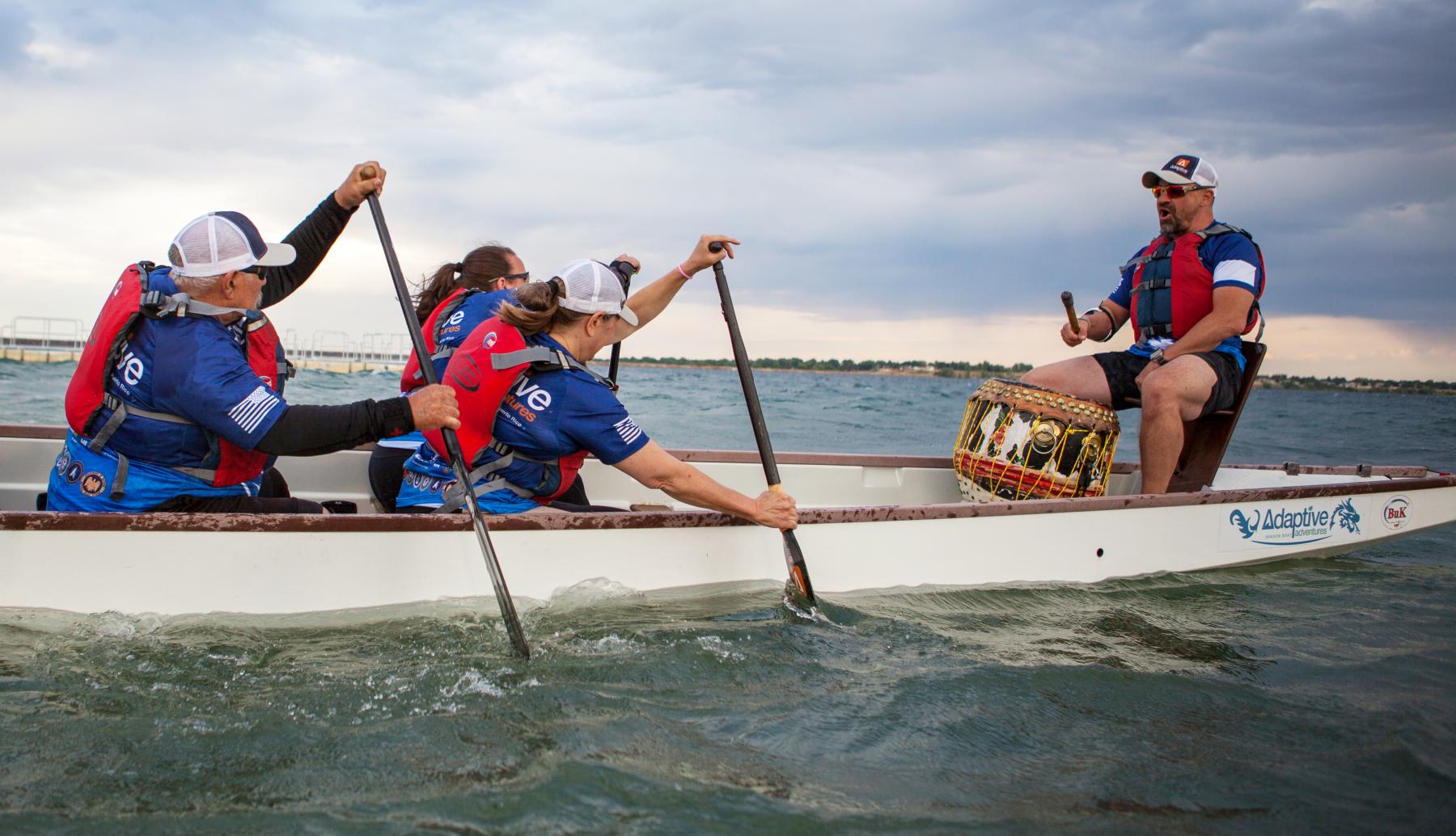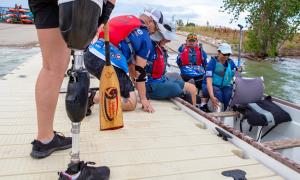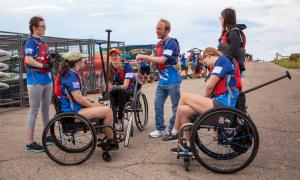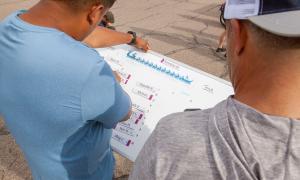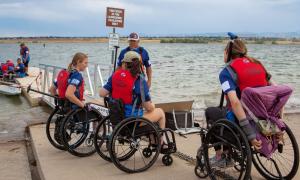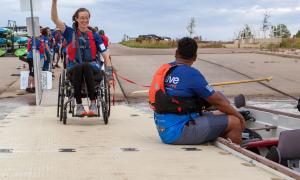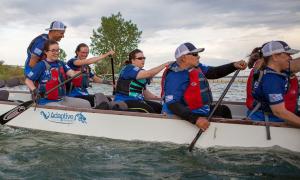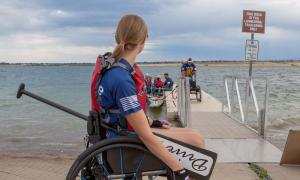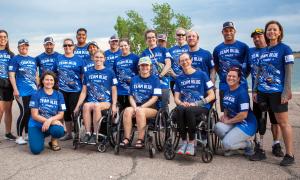After a genetic condition took her vision in 2019, Charis Glatthar began attending the Colorado Center for the Blind, a skills-training center in Littleton for people who are blind or have low vision. During her second day, someone asked if she wanted to go rock climbing. “I didn’t even know how to be blind yet,” she said. “But I thought, ‘what’s the worst that could happen?’”
The thrill of outdoor adventure hooked Charis immediately, and she soon added cycling, paddleboarding, and dragon boat racing to her list of activities.
But while on a cruise with her family, Charis was not allowed to participate in onboard activities like ziplining and a lazy river because they were deemed too dangerous for a person who is blind. “When you can’t even do simple stuff because people are worried, it’s easy to get sucked into thinking, I can’t do it,” the outdoor enthusiast said.

Charis and Amy Lee certainly aren’t thinking I can’t do it when the Team Blue dragon boat is poised at the starting line. From their seats in row one, the pair leans forward in the start position, paddles buried deep in the water; anticipation builds as a tense quiet hangs in the air. “Tingly,” is how Amy describes the feeling just before the starting horn blares through the silence and the rowers launch into action.
As the stroke pacesetters, Charis and Amy use strength, rhythm, and endurance — not vision — to excel in their roles. Leading from the front allows them to feel empowered by their abilities, not limited.
Data from the 2023 Colorado Health Access Survey (CHAS) showed that 7.4% of adults (which equates to about 335,000 people) were unable to work due to a disability. Further analysis revealed that these Coloradans also experienced more health and mental health challenges. Adaptative sports options, like Team Blue, can improve both for participants.
Adaptive sports incorporate modifications that allow athletes of diverse physical and mental abilities to participate. Team Blue works with local manufacturers and college engineering students to develop and build seats and equipment that meet the unique physical needs of the athletes, according to Chelsea Elder, executive director of Adaptive Adventures, which organizes Team Blue.
The team is often the only adaptive boat in their race fields, but you wouldn’t know that by watching the action. Every year, Colorado hosts the country’s largest dragon boat festival at Sloan’s Lake in Denver. This year, Team Blue raced in several heats, placing just seconds or milliseconds behind premier dragon boat teams.
“When we get back to the dock after beating a team or coming close and they look over and see us putting limbs back on or loading into wheelchairs, they are shocked and amazed,” Chelsea said. “You can’t tell the difference when we are out on the water.”


